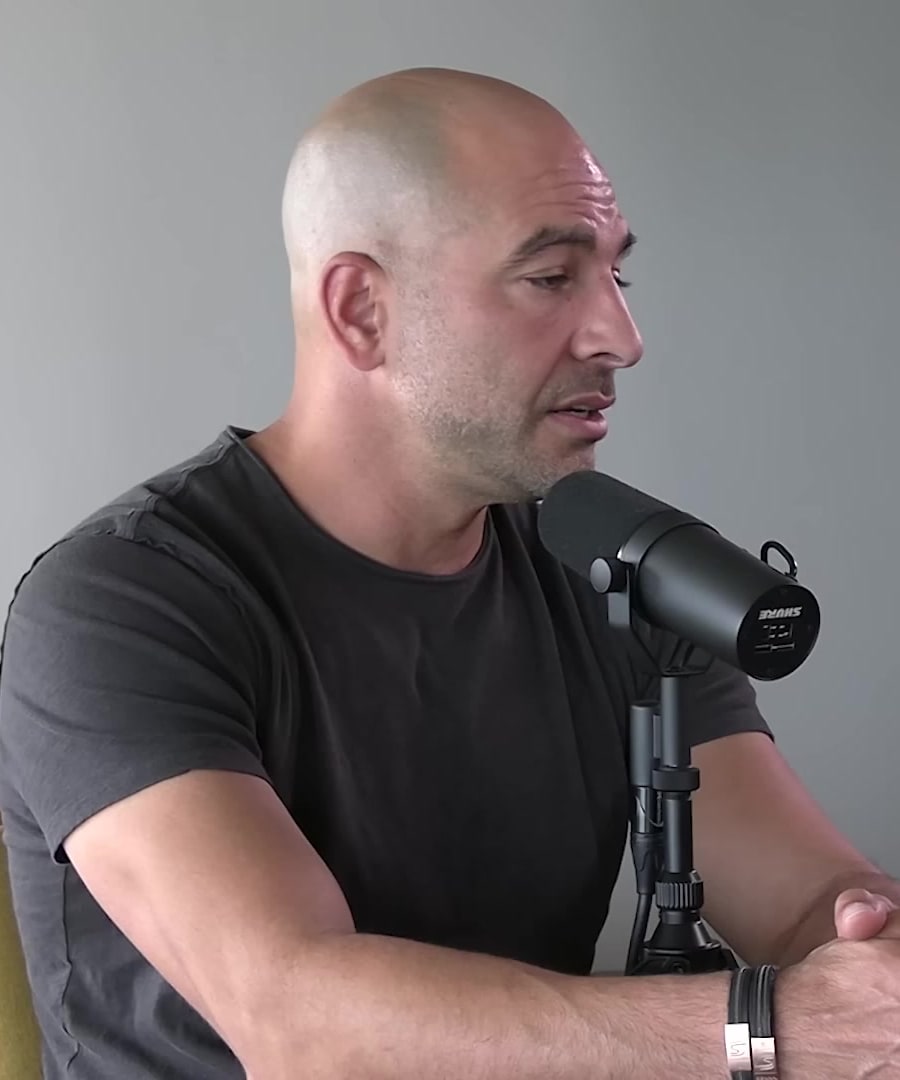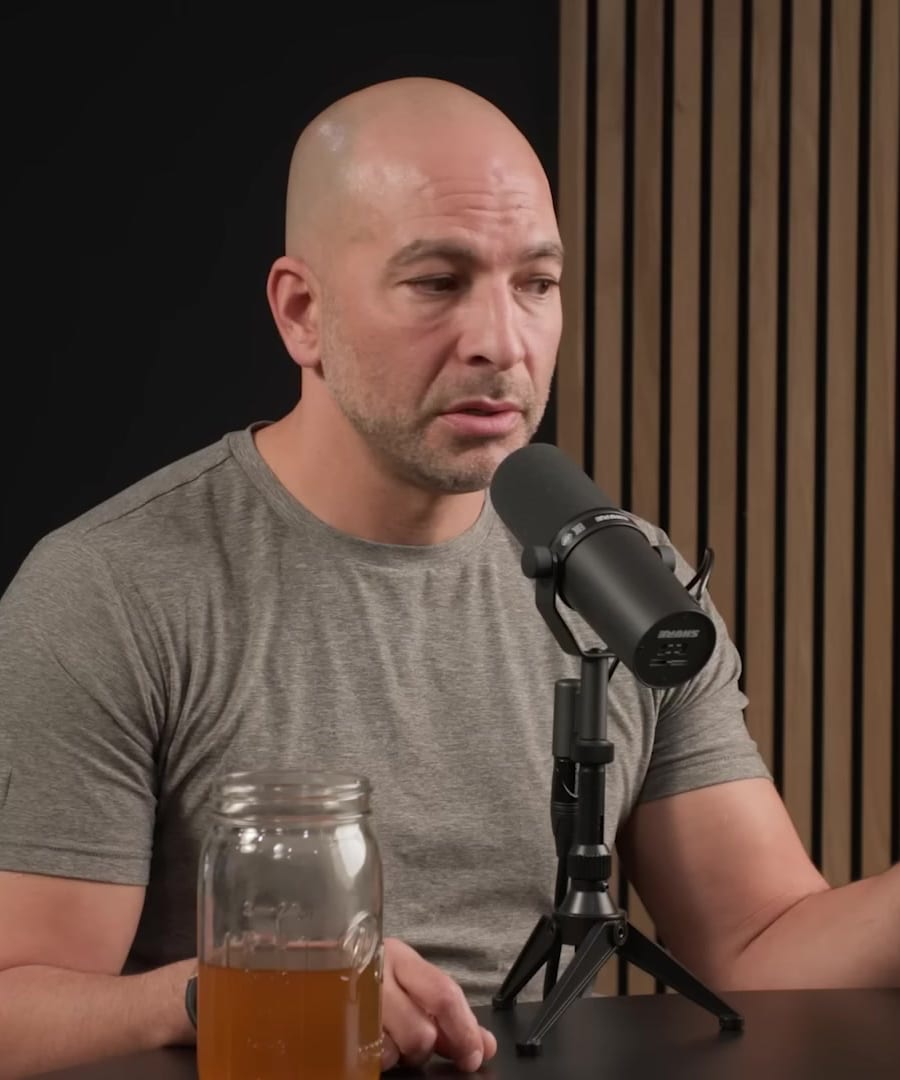Cholesterol
Sources:
The discussion on cholesterol in the Huberman Lab podcast, especially in conversations involving Dr. Peter Attia, explores multiple facets of cholesterol, including its relationship with dietary intake and its transport mechanisms in the body.
-
Dietary Cholesterol vs. Serum Cholesterol: Dr. Peter Attia clarifies that dietary cholesterol has little impact on serum cholesterol levels. This is an insight that has been recognized in scientific literature but took decades for organizations like the American Heart Association to acknowledge. Dr. Attie highlights the distinction between cholesterol and saturated fats, explaining that while dietary cholesterol may not significantly affect serum levels, saturated fats can raise LDL cholesterol levels in many people 1.
-
Cholesterol Absorption and Transport: Cholesterol is crucial for cellular membrane fluidity and hormone synthesis. Most dietary cholesterol does not get absorbed due to its esterified form which hinders its cellular uptake. Only about 10-15% of dietary cholesterol can be de-esterified and absorbed into the body's cholesterol pool 2.
-
Understanding Lipoproteins: Dr. Attia discusses lipoproteins, which are essential for transporting cholesterol given its insolubility in blood. Lipoproteins are categorized based on their density and lipid to protein ratio, with LDL (low-density lipoprotein) and HDL (high-density lipoprotein) being the most common types. LDL particles, which are more lipid-rich, are considered atherogenic (capable of forming plaques in blood vessels) 3.
-
Cholesterol Medications: There is an exploration of pharmaceutical interventions like statins, which decrease cholesterol synthesis in the liver, and ezetimibe, which blocks cholesterol absorption in the intestine. While statins are widely known and used, ezetimibe is noted for having minimal side effects and is often used in combination with statins to enhance cholesterol reduction 4.
Understanding these different aspects of cholesterol can help in managing health through diet, lifestyle, and when necessary, medication.
-
How to manage cholesterol levels?
Sources:
Managing cholesterol levels effectively involves a combination of dietary modifications, lifestyle changes, and possibly pharmacological interventions. Here are key strategies based on the Huberman Lab's discussions:
-
Dietary Approaches:
- Reduce Saturated Fat and Carbohydrates: Lowering intake of saturated fats and carbohydrates can decrease the production of LDL cholesterol and triglycerides. This has a direct impact on lowering apolipoprotein B (apoB) levels, which are critical in the concentration of LDL and VLDL particles 1.
- Increase Fiber: Consuming more soluble fiber can help reduce the absorption of cholesterol in the bloodstream.
-
Lifestyle Modifications:
- Regular Exercise: Engaging in regular physical activity can help increase the levels of high-density lipoprotein (HDL) or "good" cholesterol, which aids in transporting cholesterol to the liver for excretion 1.
- Maintain a Healthy Weight: Achieving and maintaining a healthy weight can help improve your lipid profile.
-
Pharmacological Interventions:
- Statins: These are commonly prescribed to reduce cholesterol synthesis in the liver. By inhibiting cholesterol synthesis, the liver compensates by increasing LDL receptors, thus pulling more LDL from the circulation 2.
- PCSK9 Inhibitors: These are a newer class of injectable drugs that significantly lower LDL cholesterol by blocking a protein that degrades LDL receptors on liver cells. This results in an increased removal of LDL cholesterol from the bloodstream 2.
It's important to tailor cholesterol management strategies to individual needs and conditions, often in consultation with healthcare providers 1.
-
What foods lower cholesterol?
Sources:
Consuming specific foods can help lower cholesterol levels. Here are some effective options based on discussions in the Huberman Lab:
-
Soluble Fiber: Foods rich in soluble fiber can help reduce the absorption of cholesterol into your bloodstream. Options include oats, beans, lentils, apples, and pears.
-
Nuts: Nuts like almonds and walnuts can help reduce heart disease risk and lower LDL cholesterol levels.
-
Fatty Fish: Rich in omega-3 fatty acids, fatty fish like salmon, mackerel, and sardines can help lower triglycerides and improve overall heart health.
-
Olive Oil: Using olive oil instead of other fats can help reduce LDL cholesterol without affecting HDL cholesterol.
-
Fruits and Vegetables: These are high in dietary fiber and antioxidants which are beneficial in lowering cholesterol.
-
Whole Grains: Whole grains like barley, brown rice, and whole wheat also contain soluble fiber that can help lower cholesterol.
By incorporating these foods into a balanced diet, you can help manage your cholesterol levels effectively. Always consider discussing dietary changes with a healthcare provider, especially if you have underlying health conditions.
-
Functional Range Systems and Dr. Andreo Spina?
Sources:
In the Huberman Lab data, there is no mention of the Functional Range Systems or Dr. Andreo Spina. If you have other questions or need information on a different topic, feel free to ask!
RELATED QUESTIONS
Cholesterol
How to manage cholesterol levels?
What foods lower cholesterol?
Functional Range Systems and Dr. Andreo Spina?
- RELATED QUESTIONS





